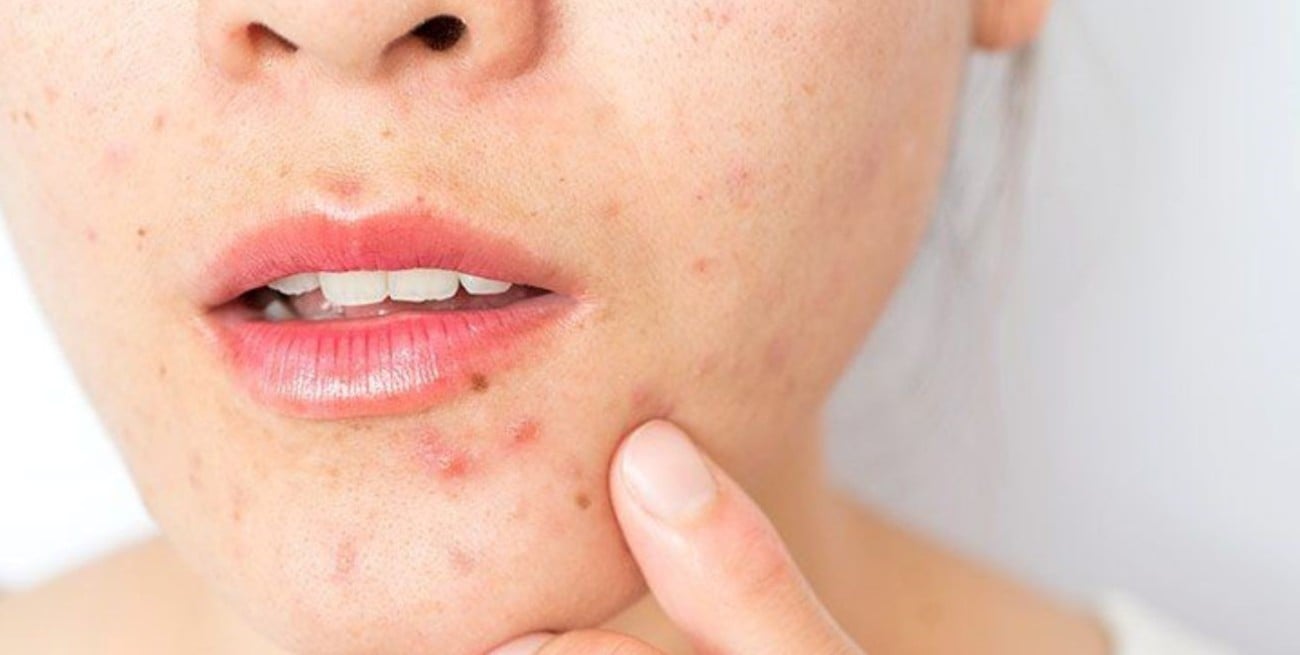Tuesday 12.9.2023
/
latest update 8:15
Skin pimples are a common problem that affects people of all ages and genders. Although often thought of as a dilemma unique to adolescence, many adults also struggle with these unwelcome invaders on their skin. While it’s tempting to squeeze them or use quick fixes like toothpaste to get rid of them, it’s crucial to understand what pimples are, why they appear, and how to fight them without damaging your skin.
What are papules and why do they occur?
Papules, also known as blackheads or acne, are small inflammations on the skin that appear when pores become clogged with oil, dead skin cells, and bacteria. Clogged pores may appear as blackheads (open comedones) or whiteheads (closed comedones). When these pimples become infected, they turn into red, painful pimples.
Acne can have many causes. The most common of these are:
oil production glut: Sebaceous glands secrete too much oil and clog pores.
accumulation of dead cells: Dead skin cells mix with oil and clog pores.
You can also take a look
You can also take a look
Anti-Aging Care: Tips for Neck and Shoulders
bacteria: Bacteria, especially Propionibacterium acnes, can infect clogged pores and cause inflammation.
Hormonal changes: Hormonal imbalances, such as those that occur during puberty or the menstrual cycle, can increase oil production and trigger acne.
genetic factors: Genetic predisposition also plays an important role in the predisposition to develop acne.
How to fight acne without damaging your skin
Hot water compression: Applying hot water to acne can help open clogged pores and relieve inflammation. This can speed up the ripening and eventual disappearance of the grains. Make sure the water is hot, but not so hot that it burns your skin.
Salicylic acid treatment: Products containing salicylic acid can effectively exfoliate and unclog pores. Apply a small amount directly to pimples or use a cleanser containing salicylic acid to prevent future breakouts.
clay mask: Clay masks, like bentonite clay or kaolin clay, can help absorb excess oil and reduce inflammation. Use once or twice a week as part of your skin care routine.
Tea tree oil: Tea tree oil is known for its antibacterial and anti-inflammatory properties. Dilute it in a small amount of water and apply it to your pimples or use a product containing this oil.
ice: Applying an ice pack wrapped in a cloth to the pimple can reduce inflammation and reduce pain. Do this several times a day for a few minutes each time.
You can also take a look
You can also take a look
Benefits of sesame oil for skin and hair
Avoid acne-causing cosmetics: If you wear makeup, make sure it’s oil-free and non-comedogenic. This means it won’t clog pores or make acne worse.
Replace pillowcases: Over time, pillowcases can accumulate grease, dirt, and bacteria. Changing them regularly can help keep your skin clear and reduce the chance of breakouts.
To clean makeup brushes and sponges: Makeup tools can be a breeding ground for bacteria. Wash regularly to avoid transferring bacteria to your skin.
Keep hands away from face: Frequently touching your face with your hands can transfer oil and bacteria, making acne worse. Avoid touching your face unnecessarily.
healthy nutrition: Eat a balanced diet rich in fruits, vegetables and lean protein. Avoid excess processed foods, saturated fats, and refined sugars, which can contribute to acne.
Keep in mind that results may vary from person to person, and what works for someone may not work for someone else. Consistency and patience in your skin care routine are key. If acne persists or is severe, seek the guidance of a dermatologist immediately.
Can toothpaste get rid of acne?
Toothpaste is a popular home remedy that some people use to dry out acne. It contains ingredients like baking soda, anti-inflammatory ingredients, and possible antibacterial ingredients that may help reduce inflammation and the appearance of acne.
For these reasons, their use is not contraindicated, but for hygienic reasons it is appropriate to use related products to avoid the risk of reopening the infection channels and prolonging the infection healing process. Additionally, it must be taken into account that toothpaste is not suitable for topical use as it may cause burns.


